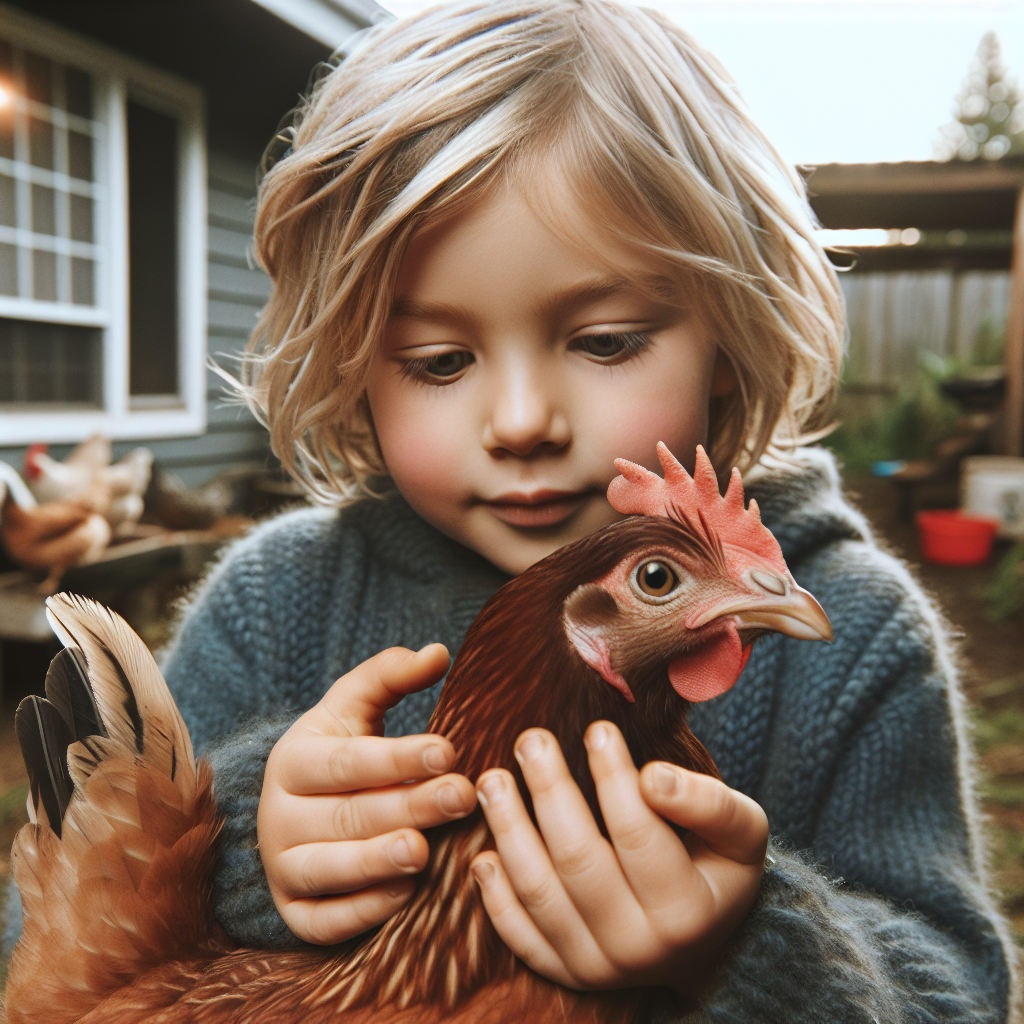As a backyard poultry farmer, you may be wondering how to ensure that your practices are sustainable and ethical. It’s important to consider the impact of your farm on the environment and the welfare of your birds. By implementing thoughtful and responsible techniques, such as providing proper housing, balanced diets, and regular health checks, you can create a backyard poultry farm that prioritizes sustainability and ethics. In this article, we will explore various strategies and guidelines that will help you achieve these goals.
Choosing the Right Breed
When it comes to backyard poultry farming, choosing the right breed is of utmost importance. Consideration of breed characteristics is key in order to meet your goals and ensure the well-being of your flock. Some breeds are more suitable for egg production, while others are better for meat production. Consider the climate in your area and choose breeds that are well adapted to it. Additionally, prioritize heritage breeds as they tend to be hardier, more self-sufficient, and less prone to health issues.
Providing Appropriate Shelter
Designing a spacious and comfortable coop is essential for the health and happiness of your poultry. Ensure the coop is large enough to accommodate your flock comfortably, allowing them enough space to move around freely. Proper ventilation is also crucial to prevent the accumulation of excessive moisture and odors. Incorporate windows or vents that can be opened and closed as needed. Furthermore, using natural materials for construction, such as untreated wood and natural insulation, promotes a healthier environment for your birds.
Implementing Good Biosecurity Measures
Maintaining biosecurity practices is vital to prevent the spread of diseases among your flock. Limiting exposure to wild birds and other animals is important as they can carry diseases without showing any symptoms. Regularly disinfecting the coop and equipment, especially after any potential exposure to pathogens, helps ensure a clean environment for your birds. Additionally, quarantine new birds before introducing them to your existing flock to prevent the spread of any potential diseases.
Maintaining Proper Hygiene
Proper hygiene is essential for the overall health and well-being of your poultry. Regularly cleaning and sanitizing the coop helps prevent the buildup of bacteria and parasites. Remove any bedding or droppings that may accumulate, as they can harbor harmful pathogens. Additionally, proper waste management is crucial. Consider implementing a composting system for your poultry waste, as it helps minimize environmental impact and provides a natural fertilizer for your garden. Lastly, practicing good personal hygiene, such as washing your hands before and after handling your chickens, helps prevent the spread of any potential diseases.
Implementing Ethical Feeding Practices
Feeding your poultry a balanced diet is essential for their health and productivity. Provide them with a mixture of grains, vegetables, and protein sources to ensure they receive all the necessary nutrients. Avoid the use of antibiotics and hormones in their feed, as these can have negative health effects and contribute to the development of antibiotic-resistant bacteria. Additionally, offering access to fresh, clean water at all times is crucial for hydration and overall well-being.
Promoting Natural Behavior and Enrichment
Allowing your poultry access to outdoor space is important to promote their natural behavior and overall well-being. This allows them to forage, dustbathe, and socialize, which are all important behaviors for their mental and physical health. Providing objects such as roosting bars and perches allows them to engage in natural behaviors and exercise their muscles. Furthermore, encouraging socialization among the flock helps create a harmonious environment and reduces stress.
Ensuring Proper Veterinary Care
Regular check-ups and vaccinations are important to keep your flock healthy and prevent the spread of diseases. Make sure to establish a relationship with a veterinarian who specializes in poultry to ensure proper care and advice. Maintaining proper parasite control, such as regular deworming and mite prevention, is also crucial to prevent infestations and potential health issues. Prompt treatment of any health issues that arise is essential to prevent further complications and ensure the well-being of your birds.
Minimizing Environmental Impact
As a backyard poultry farmer, it is important to minimize the environmental impact of your operations. Proper waste management and composting not only reduce waste but also provide a valuable resource for your garden. Consider using sustainable bedding materials, such as straw or wood shavings, which can be composted and reused. Additionally, conserving water and energy in your poultry farming practices, for example by using rainwater collection systems or energy-efficient lighting, helps reduce your carbon footprint and saves resources.
Supporting Local and Organic Feed Sources
Supporting local farmers by sourcing feed from them not only strengthens the local economy but also helps reduce the environmental impact of long-distance transport. Local farmers often utilize sustainable practices and may offer organic feed options as well. Choosing organic and non-GMO feed helps ensure that your birds are consuming high-quality, nutrient-dense feed without the use of harmful chemicals or genetically modified ingredients. Reducing reliance on industrial feed production contributes to a more sustainable and ethical approach to backyard poultry farming.
Educating and Engaging with the Community
Sharing knowledge and experiences with fellow poultry farmers not only fosters a sense of community but also promotes the exchange of ideas on sustainable and ethical practices. Participating in local agricultural events and workshops allows you to expand your knowledge and learn from experts in the field. Furthermore, promoting backyard poultry farming as a sustainable and ethical practice in your community helps raise awareness about the benefits of responsibly raising poultry and encourages others to adopt similar practices.
By following these practices and incorporating them into your backyard poultry farming operations, you can ensure that your practices are both sustainable and ethical. By choosing the right breed, providing appropriate shelter, implementing good biosecurity measures, maintaining proper hygiene, practicing ethical feeding practices, promoting natural behavior and enrichment, ensuring proper veterinary care, minimizing environmental impact, supporting local and organic feed sources, and educating and engaging with the community, you can create a thriving and ethical backyard poultry farm.




